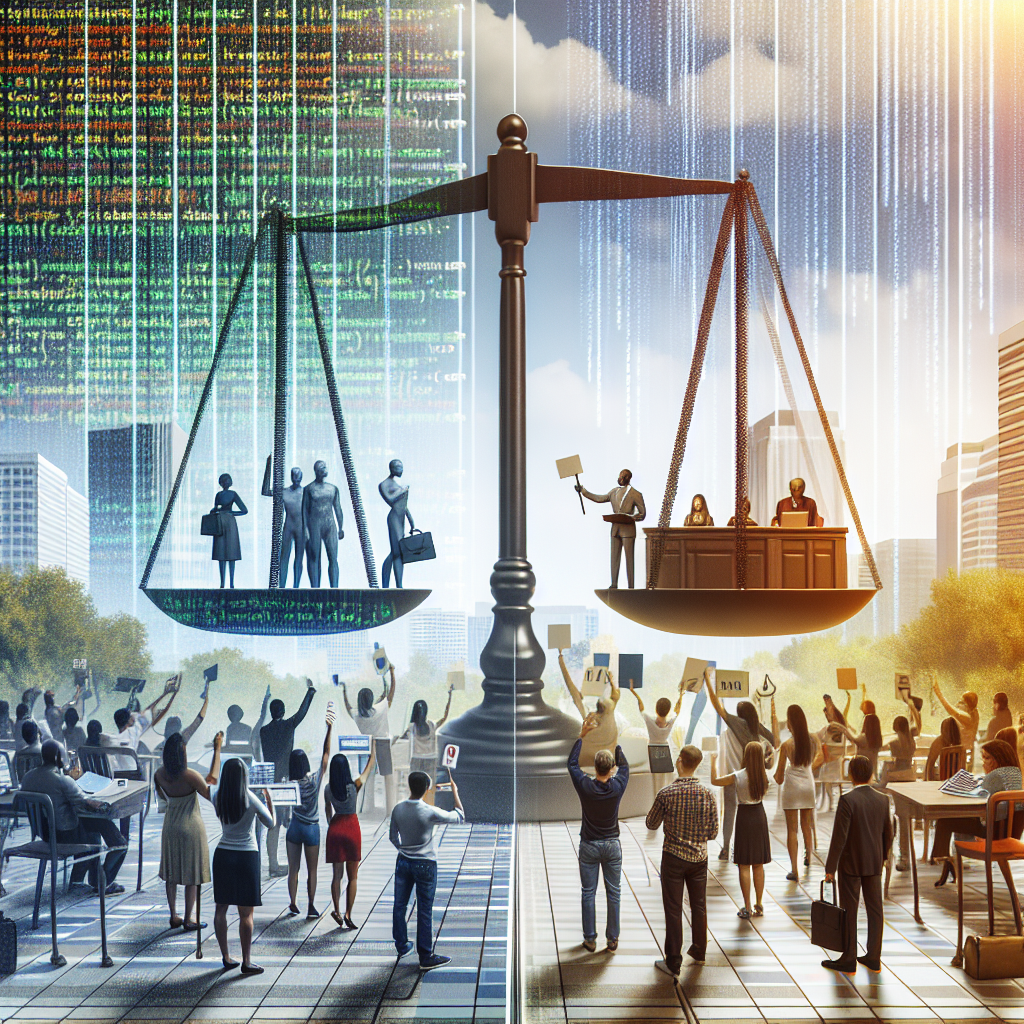AI and Social Justice: The Case for Democratization
Artificial Intelligence (AI) has the potential to revolutionize numerous aspects of society, from healthcare and transportation to education and finance. However, as AI technologies become more prevalent, there is a growing concern about the potential for these systems to perpetuate existing social inequalities. In order to ensure that AI is used in a way that promotes social justice, it is essential to prioritize democratization and ensure that AI systems are developed and deployed in a way that is fair, transparent, and accountable.
The Impact of AI on Social Justice
AI technologies have the potential to both exacerbate and alleviate existing social inequalities. On one hand, AI systems have the ability to automate decision-making processes, which can lead to increased efficiency and productivity. However, if these systems are not designed and implemented with fairness and equity in mind, they can also perpetuate biases and discrimination.
For example, AI algorithms used in hiring processes have been shown to favor certain demographics over others, leading to disparities in employment opportunities. Similarly, AI systems used in criminal justice systems have been found to be biased against marginalized communities, leading to unfair treatment and sentencing.
In order to address these issues and ensure that AI technologies are used in a way that promotes social justice, it is essential to prioritize democratization. This involves making AI technologies more accessible, transparent, and accountable to all members of society.
The Case for Democratization
Democratizing AI involves ensuring that the development and deployment of AI systems are inclusive and transparent. This includes:
1. Diverse representation: In order to avoid biases and ensure that AI systems are fair and equitable, it is essential to have diverse representation in the development process. This means including individuals from a variety of backgrounds and perspectives in the design and implementation of AI systems.
2. Transparency: AI systems should be transparent in their decision-making processes, so that users can understand how decisions are being made and challenge them if necessary. This can help to ensure that AI systems are accountable and do not perpetuate biases or discrimination.
3. Accountability: In order to prevent the misuse of AI technologies and ensure that they are used in a way that promotes social justice, it is essential to have mechanisms in place for accountability. This can include regulations, oversight, and auditing processes to ensure that AI systems are being used responsibly.
By prioritizing democratization in the development and deployment of AI technologies, we can ensure that these systems are used in a way that promotes social justice and benefits all members of society.
FAQs
Q: What are some examples of how AI technologies can perpetuate social inequalities?
A: AI technologies can perpetuate social inequalities in a variety of ways, such as through biased algorithms used in hiring processes, discriminatory AI systems used in criminal justice systems, and automated decision-making processes that favor certain demographics over others.
Q: How can democratization help to address these issues?
A: Democratizing AI involves making the development and deployment of AI systems more inclusive, transparent, and accountable. By prioritizing diverse representation, transparency, and accountability, we can ensure that AI technologies are used in a way that promotes social justice and benefits all members of society.
Q: What are some steps that can be taken to democratize AI?
A: Some steps that can be taken to democratize AI include increasing diversity in the development process, promoting transparency in decision-making processes, and implementing mechanisms for accountability. By prioritizing these principles, we can ensure that AI technologies are used in a way that promotes social justice.
Q: How can individuals advocate for democratization in AI?
A: Individuals can advocate for democratization in AI by raising awareness about the potential impacts of AI technologies on social justice, supporting policies and initiatives that promote diversity, transparency, and accountability in the development and deployment of AI systems, and holding companies and organizations accountable for the responsible use of AI technologies.
In conclusion, AI has the potential to revolutionize numerous aspects of society, but it is essential to ensure that these technologies are developed and deployed in a way that promotes social justice. By prioritizing democratization and making AI systems more inclusive, transparent, and accountable, we can ensure that AI technologies benefit all members of society and help to address existing social inequalities.

